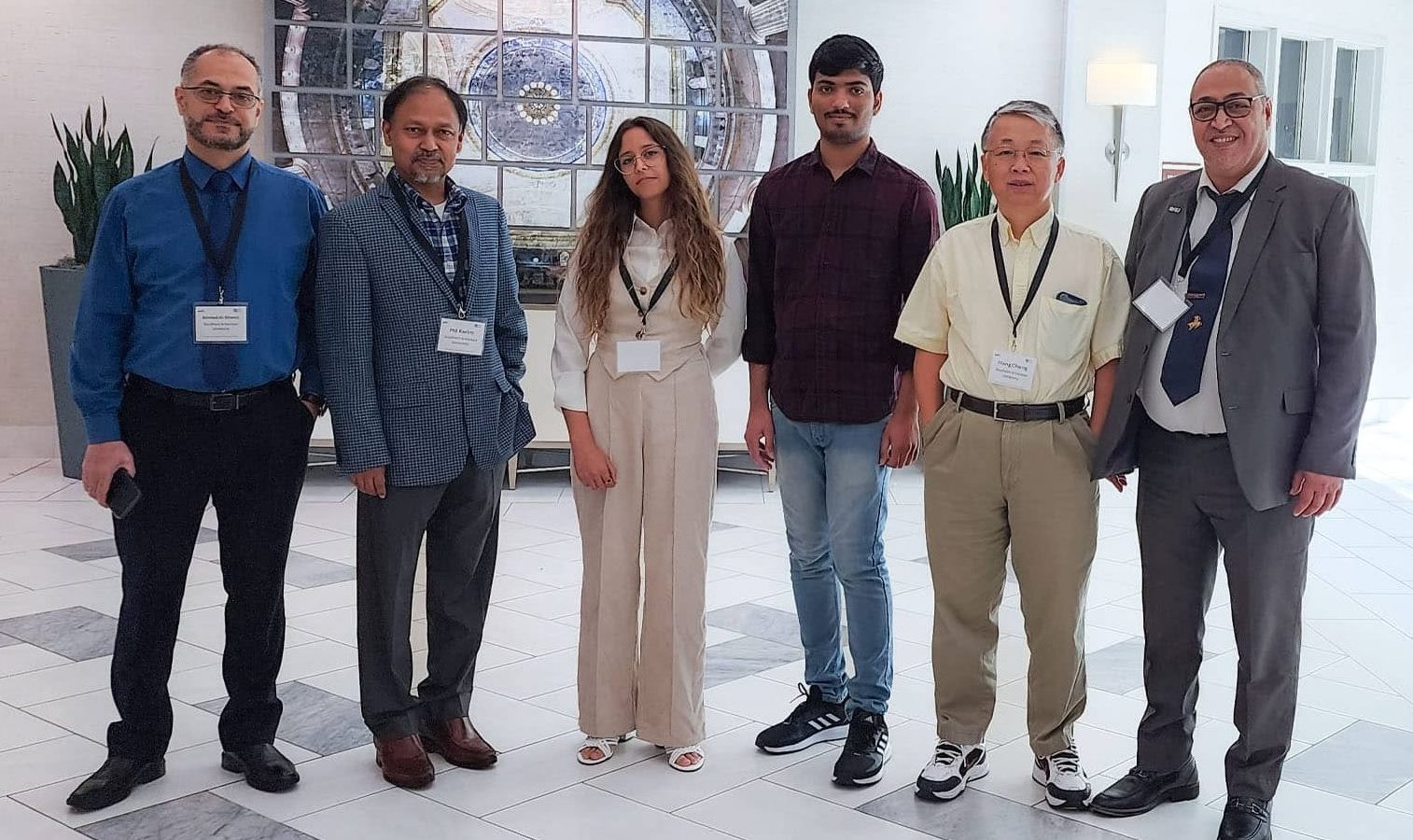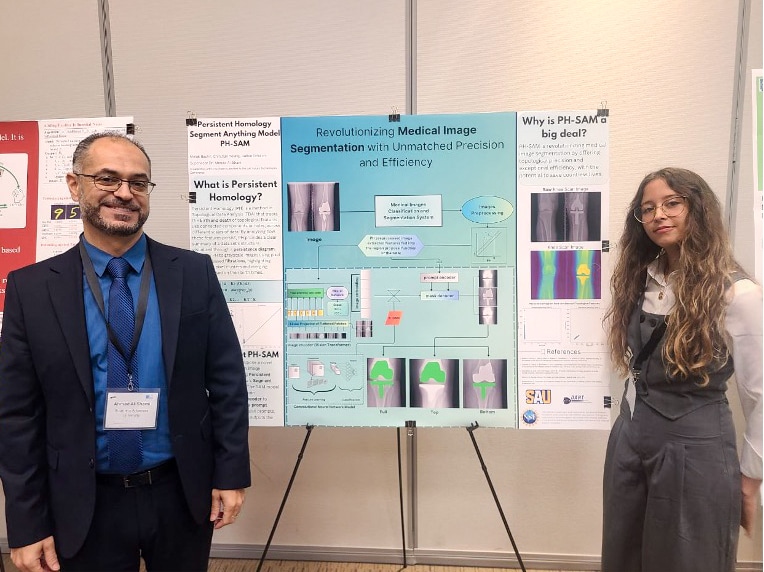
From left: Dr. Ahmad Al-Shami, Dr. Md Karim, Malak Bachri, Rupesh Konduru, Dr. Hong Cheng, and Dr. Abdel Bachri
The DART (Data Analytics that are Robust and Trusted) initiative, supported by a $20 million NSF EPSCoR grant and an additional $4 million from the state of Arkansas, is entering its final year in 2024-25. This collaborative effort involves several Arkansas universities, including Southern Arkansas University, and aims to enhance data analytics through a multidisciplinary approach.
DART addresses barriers to the practical application and acceptance of data analytics by systematically investigating key challenges and developing innovative solutions. The initiative comprises five primary research themes: Coordinated Cyberinfrastructure, Data Life Cycle and Curation, Social Awareness, Social Media and Networks, and Learning and Prediction. SAU is actively engaged in the Learning and Prediction theme, collaborating with the University of Arkansas at Fayetteville, the University of Central Arkansas, and Arkansas State University. Dr. Md Karim is a member of the project’s leadership team.
Research initiatives at SAU have involved four graduate and more than 15 undergraduate students, focusing on topics such as Deep Reinforcement Learning, Persistent Homology, Image Analytics, and Causal Learning. This collaboration has resulted in over ten peer-reviewed publications and three master’s theses from SAU. Several graduate and undergraduate students, including Rebekah Leamons, Christian Young, and Kristopher Johnson, have received recognition for their research, winning awards in annual poster contests.
Last month, Malak Bachri, a junior computer science student, won the second-best poster award during the 2024 DART Annual Conference Poster competition. In a project titled “Revolutionizing Medical Image Segmentation with Unmatched Precision and Efficiency,” the students Malak Bachri, Christian Young, and Dalton Grisson and their research mentor Dr. Ahmad Al-Shami, associate professor of computer science, sought to combine two tools: Persistent Homology (PH) and Meta’s Segment Anything Model (SAM) to make medical scans more precise, faster, and potentially uncover new insights that enhance diagnostic and therapeutic procedures.

Dr. Ahmad Al-Shami and student, Malak Bachri, proudly display their award-winning poster.
The DART initiative exemplifies the power of collaboration in advancing data analytics research. With a strong foundation laid over the past few years, the program is well-positioned to leave a lasting impact on both academia and the broader community. The outcomes of this initiative have advanced academic knowledge and yielded practical applications, contributing to statewide data science programs that benefit the economy of Arkansas and beyond. Additionally, the success of DART has set the stage for future collaborations and additional grants in the coming years.
“I congratulate Malak on her performance during the annual poster competition, where faculty judges from campuses across the region were particularly impressed by her scientific and communication skills. The engagement from SAU has undoubtedly strengthened the DART project. Students from the SAU campus continue to win awards and travel to major conferences to represent the project, even within the national NSF EPSCoR community”, said Jennifer Fowler, Director and Principal Investigator of the Arkansas National Science Foundation EPSCoR program, which operates through Arkansas Economic Development Commission. Fowler also shared, “The SAU faculty involved in DART are very collaborative and have contributed significantly towards project milestones, resulting in advancements in artificial intelligence and machine learning that are pertinent to researchers worldwide. These accomplishments have bolstered the reputation of SAU and the State of Arkansas.”
In addition to Dr. Md Karim, who has been directing the SAU DART team, Dr. Hong Cheng, Dr. Ahmad Al-Shami, and Dr. Rami Alroobi have contributed to the DART effort. “By actively contributing to solutions that address real-world challenges, our faculty are fostering academic excellence and preparing our students to be leaders in this transformative field of Data Analytics,” said Dr. Abdel Bachri, dean of the College of Science and Engineering at SAU. Bachri shared, “SAU remains committed to advancing cutting-edge data analytics, and the recent addition of a Data Science track under Mathematics B.S. and Computer Science B.S. is a testament to the commitment to continued growth.”
About Southern Arkansas University:
Southern Arkansas University, located in Magnolia, Arkansas, provides students with the complete college experience in a caring environment of service, innovation, and community. With more than 100 degrees in four distinct colleges and the School of Graduate Studies, SAU initiates new degree programs to fit the needs of career and professional trends of today. To learn more about SAU, visit www.saumag.edu.
